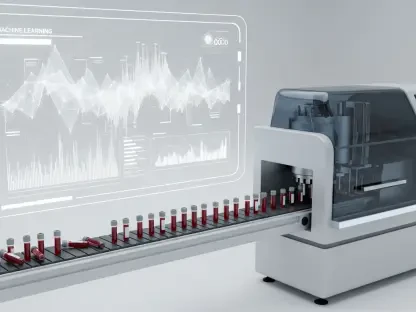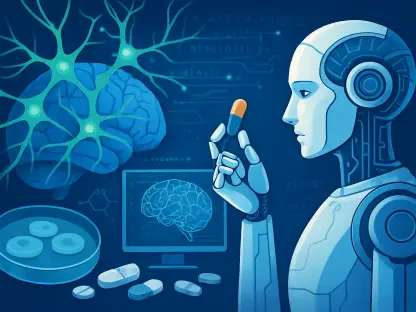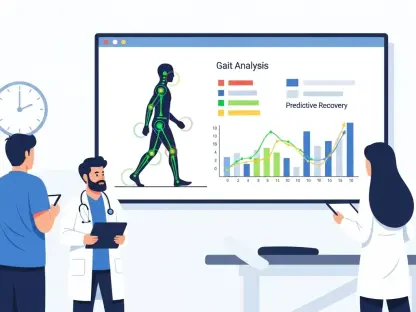Certainly! Here is the content formatted with the appropriate heading designations:The synthetic biology sector is on a trajectory to monumental expansion, expected to reach a valuation of $52.6 billion by 2030. This interdisciplinary field combines biology, engineering, computer science, and additional disciplines to design and construct biological systems with custom functionalities. Its influence spans a variety of industries, from healthcare to agriculture, energy, and environmental protection, heralding a new wave of industrial innovation. The market’s growth is driven by the potential of these engineered organisms to revolutionize conventional practices and contribute to advancements in crucial areas of the global economy. The promise of synthetic biology lies in its capacity to offer cutting-edge solutions to pressing challenges, positioning it at the forefront of scientific progress and industrial application.
Exploring the Growth of Synthetic Biology
Technological Advancements Driving the Market
The synthetic biology market is gaining momentum through key advances in genetic manipulation, gene synthesis, and bioinformatics. Technologies like CRISPR-Cas9 genome editing, Next-Generation Sequencing, and highly developed bioprocessing are crucial to this growth, allowing for detailed modification of biological systems. These methods drive progress, leading to innovative applications like synthetic genes and specially designed organisms with unique functions, while enabling quicker commercialization of these new products.Next-Generation Sequencing has broadened access to genetic information, aiding disease-related gene identification and enabling precise medical treatments. The CRISPR-Cas9 technique represents a major shift by providing exact DNA editing within living cells. These scientific milestones not only expand the scope of synthetic biology but also solidify its market presence and economic potential.
Demand for Sustainable Solutions
Synthetic biology is a game-changer in sustainable innovation. It presents breakthrough strategies to address environmental challenges and resource scarcities. In the healthcare domain, it accelerates drug development and paves the way for precise gene therapies, marking an era of personalized treatment. It intertwines various disciplines to improve and customize remedies for numerous health conditions.In agriculture, synthetic biology is reshaping sustainable farming practices. It empowers crop enhancement, fortifying plants against climate stresses, pests, and enriching their nutritional profiles. With advanced genetic tools, higher crop yields are attainable without harming the environment. These advances are crucial in meeting sustainability demands and transforming our interaction with nature and its offerings.
Regional Dynamics and Market Trends
North American and European Markets
Dominating the arena of synthetic biology are North America and Europe, regions renowned for their advanced R&D ecosystems and academic expertise. Here, the synthesis of a strong innovation culture and substantial investments in scientific discovery have culminated in a fertile environment for synthetic biology growth. These regions have been adept at bridging the gap between research and real-world applications, demonstrating a robust pipeline of bio-engineered products and services that continually feed into the market.The North American and European markets are characterized by established biotechnology sectors, bolstering the rapid assimilation and adoption of synthetic biology innovations. The supportive environment provided by both public and private entities, including substantial R&D spending and conducive regulatory frameworks, has incentivized a stream of scientific advancements that resonate with the market’s growing appetite for new and efficient technologies.
Rise of the Asia-Pacific Market
Asia-Pacific is swiftly emerging as a powerhouse in synthetic biology, underpinned by increasing healthcare expenditures, a burgeoning demand for sustainable solutions, and a growing awareness of biotechnological advancements. Accelerated by government initiatives and investments, this region is rapidly catching up to its western counterparts. The rising economic prowess of countries like China and India coupled with their embrace of innovation is fostering a fertile ground for synthetic biology development.The expansion of the synthetic biology market in the Asia-Pacific is also driven by the strategic alignment of investments in education and infrastructure, fostering the next generation of scientists and bioengineers. This alignment, along with the burgeoning middle class demanding higher quality healthcare and sustainable products, ensures that Asia-Pacific is not just a follower but a formidable contender in the global synthetic biology narrative.
Facing Industry Challenges
Regulatory and Ethical Hurdles
Despite its promising growth, the synthetic biology market grapples with a spectrum of challenges. Notably, stringent regulatory landscapes pose significant barriers to the rapid deployment of synthetic biology innovations. The intricacies of biosafety, intellectual property, and ethical concerns around gene editing demand careful navigation. Furthermore, as products transition from the lab to the marketplace, scalability and quality control remain crucial hurdles requiring innovative solutions.Ethical considerations particularly loom large as the power to alter life at a genetic level poses profound questions about the scope and direction of human intervention in nature. How society responds to these challenges and balances the prospects of scientific breakthroughs with ethical responsibilities will play a decisive role in shaping the future trajectory of the synthetic biology market.
Collaboration for Advancement
The forging of synergistic collaborations amongst academia, industry, governmental entities, and civil society is pivotal for surmounting the hurdles that face the synthetic biology market. By combining diverse expertise and resources, stakeholders can accelerate R&D and navigate the regulatory and ethical complexities with more finesse. Collaborative initiatives could streamline the commercialization process, ensuring that innovations promptly reach those who stand to benefit most.Harmonious partnerships are key to establishing transparent and agile pathways for synthetic biology advancements, smoothing out the transition from groundbreaking research to societal application. Through united efforts, the synthetic biology community can more effectively tackle challenges, unlock new opportunities, and drive sustainable progress across multiple sectors.
The Competitive Landscape
Key Players and Innovation
In the realm of synthetic biology, innovation is not a one-player game. Companies like Bolt Biosciences Inc. and Codexis, Inc. are at the forefront, investing heavily in R&D to spearhead bio-based innovations. The competitive spirit that pervades the market drives continual evolution, as companies endeavor to carve out their niche with unique and revolutionary offerings. This race to innovate not only drives the market forward but also ensures a steady influx of cutting-edge solutions that address a plethora of global challenges.The breakthroughs achieved by these leaders in synthetic biology are testament to the dynamic and ever-evolving nature of the market. Their pursuits are not just changing the commercial landscape but are also pushing the boundaries of what is possible within the realm of biological engineering.
Strategic Partnerships and R&D
In the dynamic world of synthetic biology, forging strategic partnerships and investing zealously in R&D is vital. Collaborations among companies, academia, and other organizations are pivotal, as they facilitate resource sharing, knowledge exchange, and the efficient pursuit of shared goals. Such collaborations are also integral in overcoming intricate regulatory frameworks and scaling operations globally.Companies oriented towards R&D are notably positioned to pioneer sustainable and innovative solutions, elevating their competitive edge. The synthetic biology sector, with its projected value of $52.6 billion by 2030, is on the cusp of an era marked by considerable growth and innovation. Its trajectory promises industry-changing breakthroughs that are set to revolutionize healthcare, agriculture, and ecological conservation, addressing some of the most pressing challenges of the modern age.









